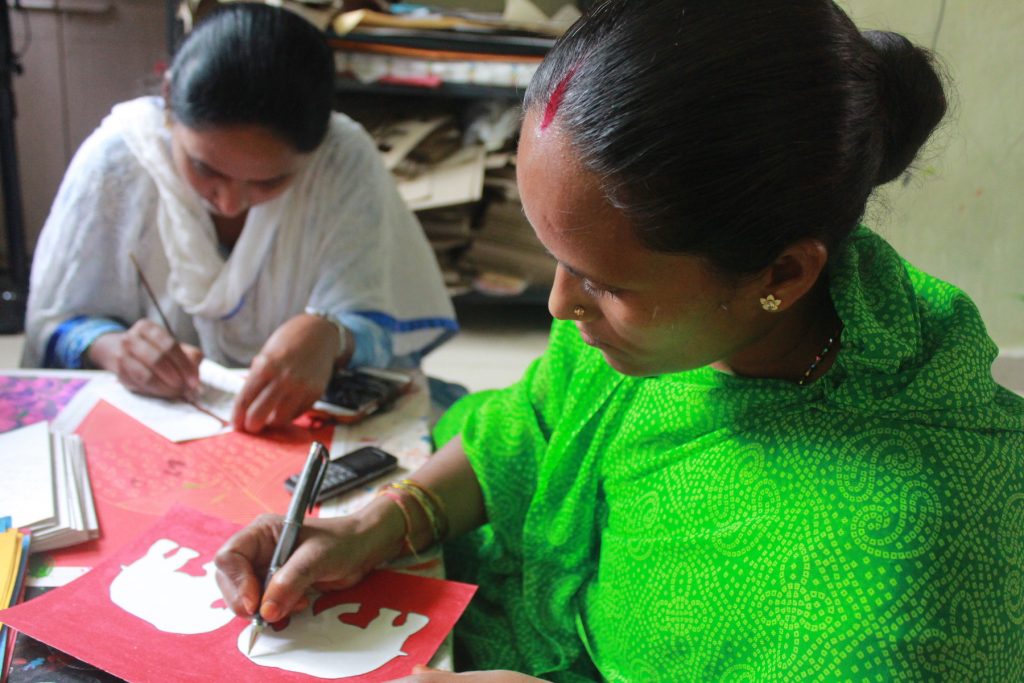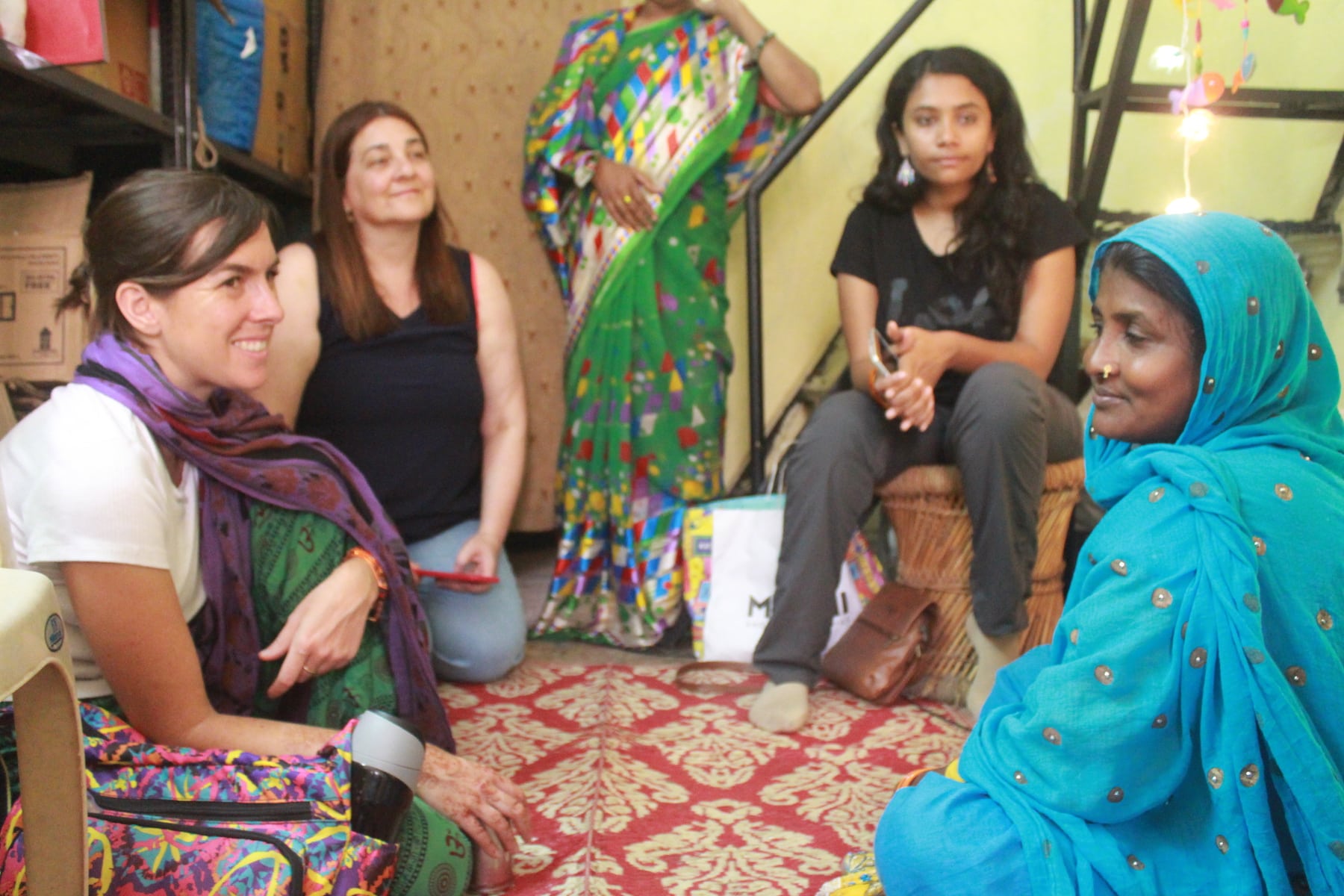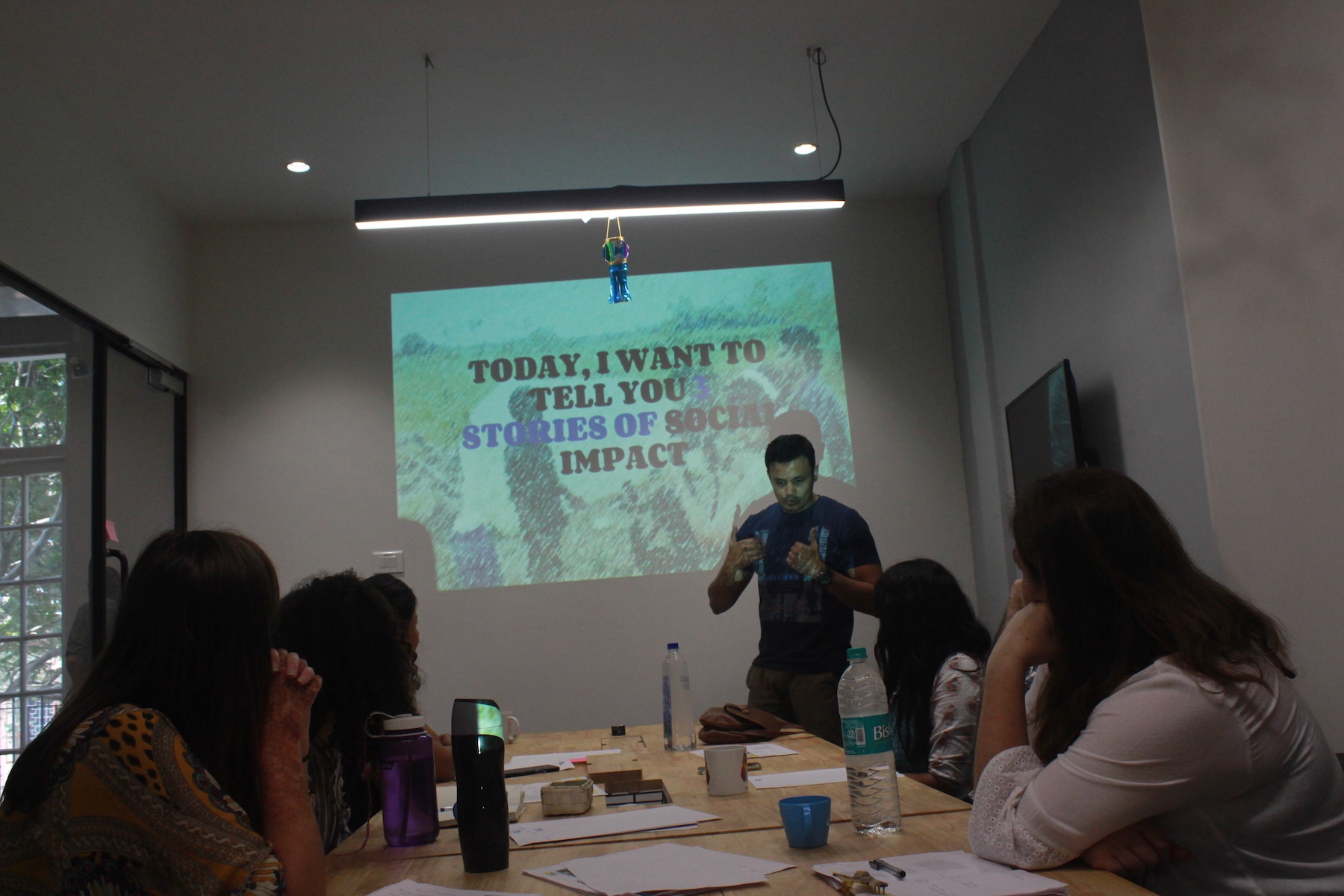Volungearing: A New Way to Do Good

A new kind of volunteer tourism has entered the travel industry with an innovative approach; Volungearing, conceived by TribesForGOOD, taps an individual’s skills to pair him or her successfully in the social impact sector. This concept gives well-meaning individuals an alternative option to the current saturated market that is voluntourism— a $173 billion industry driven mostly by travel companies. TribesForGOOD, founded by an Indian-born female social entrepreneur, Mandeep Kaur, aims to help travelers who want to make a difference in India.
What is Voluntourism?
Voluntourism, a crunching together of volunteering and tourism, encompasses a broad range of activities where travelers are participating in some type of volunteering. The term gained negative media attention when multiple sources unveiled unethical practices in the industry such as child exploitation amongst orphanage volunteering in developing countries. In Nepal for example, a Unicef study found that 85 percent of all children in orphanages had at least one living parent. After the devastating earthquake in April 2015, Nepali orphanages became a lucrative business for opportunistic traffickers to solicit foreign volunteers to fundraise and work for free to support their profit-making enterprises.
The complex issue of unethical volunteering recently resurfaced again in the media when qualified Ugandan social-workers Olivia Alaso and Kelsey Nielsen formed the ‘No White Saviours’ social media campaign against unskilled and entitled volunteers working in developing communities. Their aim was not to discourage partnerships or aid, but rather to liberate the development industry in favor of what is right for the community, not what is deemed right by external stakeholders.

While not all volunteering placements cause more harm than good, the volunteer needs to educate and plan properly to be sure their involvement is making a sustainable impact.
The Problem with Voluntourism
In 2012, filmmaker Chloé Sanguinetti documented interviews from volunteers on volunteer placements around the world. What she uncovered was that many of these individuals were on poorly arranged international volunteering programs, for which they had paid up to $3,000. Sanguinetti released her findings in her internationally renowned documentary “The Voluntourist.” The film reveals that many Western volunteers placed in developing communities have little to no skills or knowledge on how to sustainably assist the causes for which they are volunteering.
One of the fundamental issues in the voluntourism industry is that volunteers aren’t contributing to sustainable change. They lack education around the cause at hand and, in some cases, an element of self-serving interest is a primary motivation, rather than the idea of providing sustainable impact. In Jacob Kushner’s New York Times piece The Voluntourist’s Dilemma he states, “Unsatisfying as it may be, we ought to acknowledge the truth that we, as amateurs, often don’t have much to offer.”
A professional doctor may have a place in disaster-stricken Port-au-Prince on a six-month volunteer placement, but a native English speaker may not have a place as an English teacher on a 2-week volunteer placement in a remote school in the Cambodian countryside.
Another problem is that international agencies govern much of the $173 billion voluntourism industry. With large overhead costs such as Western salaries, advertising, and marketing costs, only a marginal percentage of these profits make it into the hands of the grassroots host organization, creating an unsustainable model similar to that of the charity model that perpetuates a continuous cycle of poverty. In his book, ‘Banker to the Poor: Micro-Lending and the Battle Against World Poverty,’ Muhammad Yunus argues that, “Charity is no solution to poverty. Charity only perpetuates poverty by taking the initiative away from the poor.”
TribesForGOOD Introduces Volungearing
TribesForGOOD aims to provide a more sustainable solution to volunteering by pairing participants with social enterprises, enabling skills development and first-hand experience in the philanthropic and impact-driven arena. The concept of ‘Volungearing’ was birthed in 2018 to distinguish a new, sustainable type of volunteering experience.

TribesForGOOD is on a mission to inspire a generation who wants to support and work with social impact businesses in India. In India alone, there are over 2 million social impact enterprises working to develop solutions to the country’s most pressing social and environmental issues. More than 50 percent of these businesses are understaffed, leaving a prime opportunity for utilizing skilled staff and doubling their impact.
“Our Volungearing placements are co-created with social enterprises and not-for-profits. We educate the aspiring changemakers on the workings of the organization and the impact they make,” TribesForGOOD’s Kaur said in an interview.
Through ongoing collaboration and partnership with both the individual participant and the impact organization TribesForGOOD aims to match participants with social impact businesses so they can utilize their skills to drive positive impact to causes imperative to global sustainable development. One example of their Volungearing placements is as a Social Media Ninja, a position which uses a social media strategist to partner with a women’s empowerment and livelihood social enterprise to help grow their online presence.
Using Digital Marketing Skills for Good
I had the opportunity to participate in this Volungearing program in 2018. Given my digital marketing background, I was paired with women’s development organization AfterTaste to assist with their social media strategy and website development. It was empowering to know that I was bringing to the table the right skillset to help AfterTaste achieve their goals. What was most beneficial was that much of what I had helped implement could be utilized long after I was gone. I left with a better understanding of the organization’s workings and wider knowledge of the impact-sector, and they were able to learn how to use social media to their advantage.
After completing the program, which usually runs from two to eight weeks, participants are then encouraged to answer some critical questions about their takeaways from the experience, including ‘Am I adding real value to this cause? Will this project sustain after I leave?’
“Each participant is put on a unique journey, tailored to their interests and skills, in which they are able to improve the immediate lives of people at the base of the pyramid, their immediate surroundings, and also be able to impact the lives of the many generations to come. The Impact is two fold – the first is enabling the changemaker and the second is bridging the talent gap for understaffed grassroots organizations,” Kaur said.

Sustainable business is imperative to global development, and so pairing up volunteers with impactful organizations is providing a teach-a-man-to-fish kind of solution that diminishes the need for aid and pioneers a future that allows impactful, grassroots endeavors utilize skilled individuals to create positive change in our world. If we shift the concept of volunteering in favor of the cause rather than the volunteer, then the impact becomes longer-lasting.
Book Your Travel to ANY Destination
Search, compare and book hotels & rentals at the best prices that are sourced from a variety of platforms including Booking.com, Hotels.com, Expedia, Vrbo, and more. Search for ANY destination by clicking in the upper left corner of this map. You can also use the filter to fine-tune your search, and find restaurants, attractions, and more!


2 thoughts on “Volungearing: A New Way to Do Good”
Comments are closed.